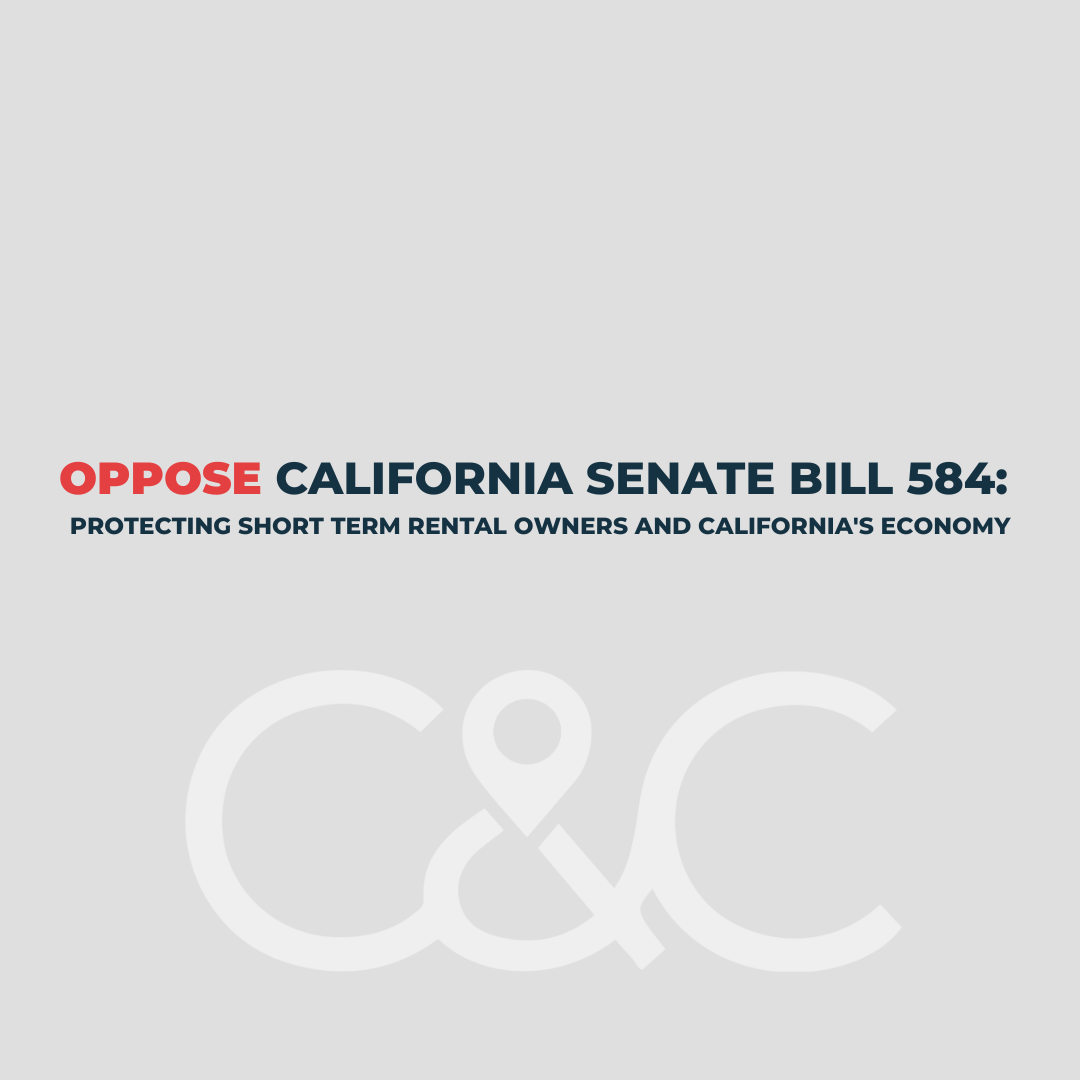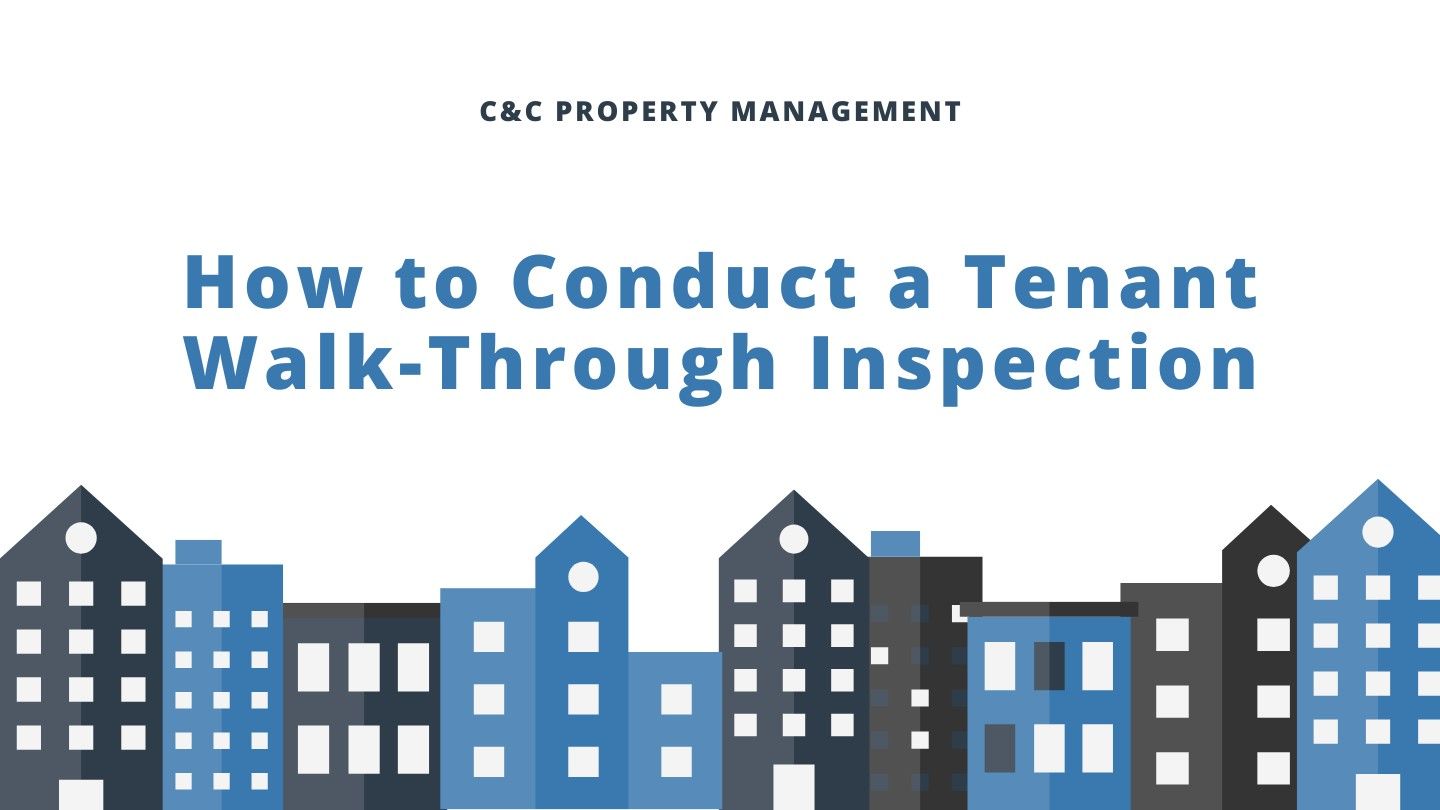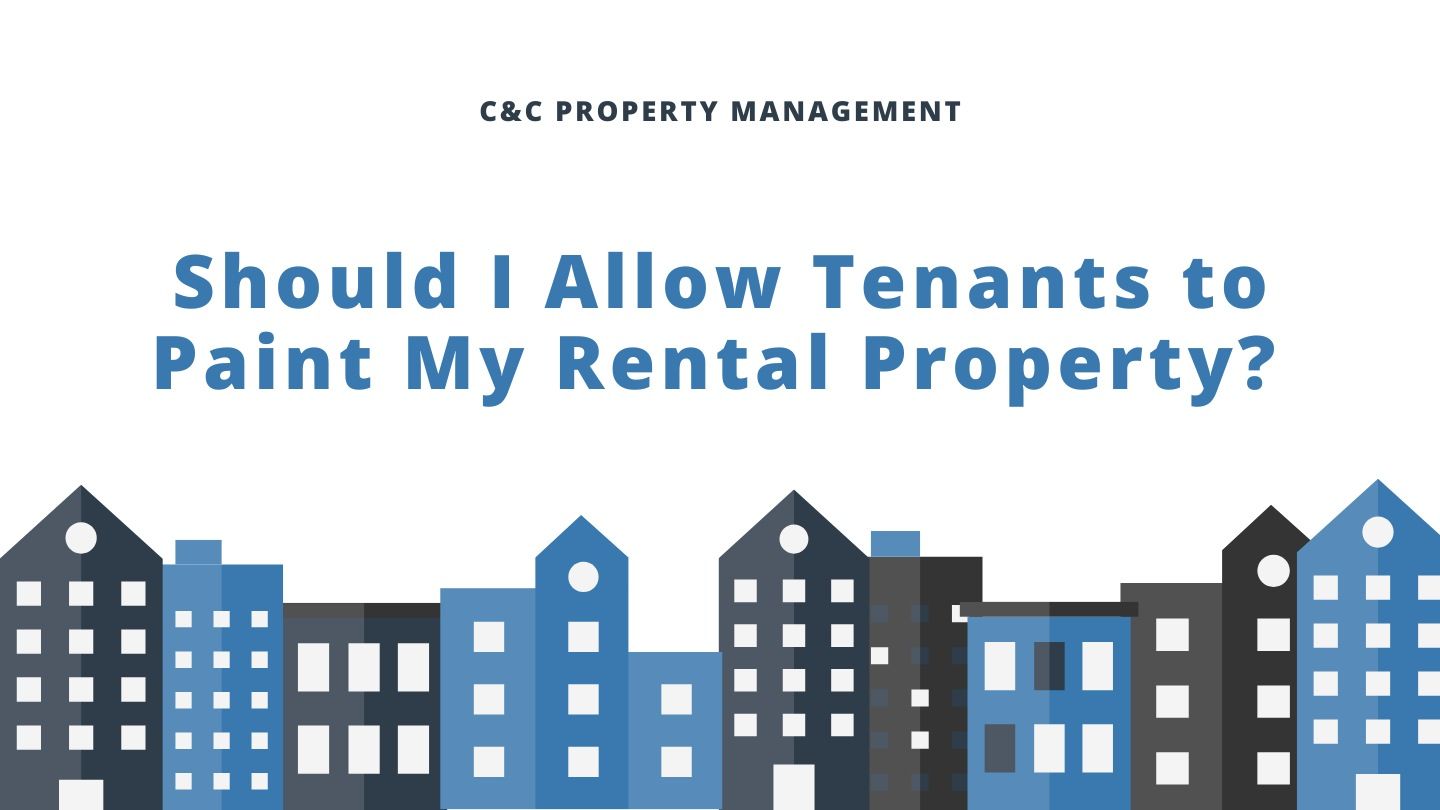Oppose California Senate Bill 584: Protecting Short Term Rental Owners and California's Economy
We are writing to inform you about the potential impact of California Senate Bill 584 (SB 584) and urge you to take action to oppose it.

This bill proposes a 15% tax specifically targeting short-term vacation rentals, which could have devastating effects on both the rental industry and California's economy as a whole. We, the Monterey County Vacation Rental Alliance (MCVRA), in collaboration with the Vacation Rental Management Association (VRMA), are working diligently to advocate against this bill. It is crucial that you join us in opposing SB 584 by taking a simple yet powerful action that will only take a minute of your time.
Understanding SB 584:
SB 584 has passed the California Senate and is now awaiting a vote on the Assembly floor. This bill seeks to impose a punitive 15% tax exclusively on short-term vacation rentals, an action that would inflict significant harm on the industry and hinder California's economic recovery post-pandemic. The negative consequences of this tax would be far-reaching, affecting property managers, homeowners, local businesses, and communities that rely on tourism revenue.
How You Can Help:
We encourage you to swiftly voice your opposition to SB 584 by contacting Assembly Members and sharing your concerns about the bill's impact on your business, livelihood, and community. Taking action is simple and can be completed in less than a minute by following these steps:
- Visit the SB 584 Action Campaign page at https://vrma.quorum.us/campaign/48691/.
- Provide your name, email, and address.
- Click on the "Submit" button.
- Ensure that all Assembly Members are selected.
- Click on the "Submit Selected Letters" button.
By taking these steps, you will help protect the short-term vacation rental industry from an unfair and burdensome tax.
The Consequences of SB 584:
SB 584's proposed 15% tax on short-term vacation rentals would have a detrimental impact on California's tourism economy, which has only just begun to recover. Tourism promotion in the state relies on revenue generated from the transient occupancy tax (TOT) paid by hotel and vacation rental guests. This tax supports local communities, with 46 cities depending on TOT revenue to cover a significant portion of their overall general fund expenditures. Implementing an additional 15% tax on short-term vacation rentals would decrease TOT and Tourism Improvement District (TID) receipts, hindering the funding of vital government services.
The bill's steep tax burden would limit affordable lodging options for low-income travelers, who often rely on short-term vacation rentals as a cost-effective alternative. Higher taxes would make California a less competitive destination, reducing visitation rates and affecting local businesses. In areas where hotels are limited, short-term vacation rentals play a crucial role in providing diverse accommodation options. The proposed tax would lead to fewer visitations, impacting local restaurants, stores, attractions, and ultimately endangering jobs and business revenue.
Additionally, SB 584 lacks guarantees that the funds collected from assessments will be directed back to the regions from which they were collected. High tourism districts may not receive housing funds proportional to the levied assessments on short-term vacation rental stays in their areas, further exacerbating the bill's unintended consequences.
Conclusion:
As members of the MCVRA and VRMA, we are committed to protecting the short-term vacation rental industry and California's economy. We strongly urge you to join us in opposing SB 584 by taking a minute to contact Assembly Members and express your concerns. Your personal stories and perspectives on how this bill will negatively impact your business, livelihood, and community can make a significant difference.
Together, we can work towards preserving the vibrant








